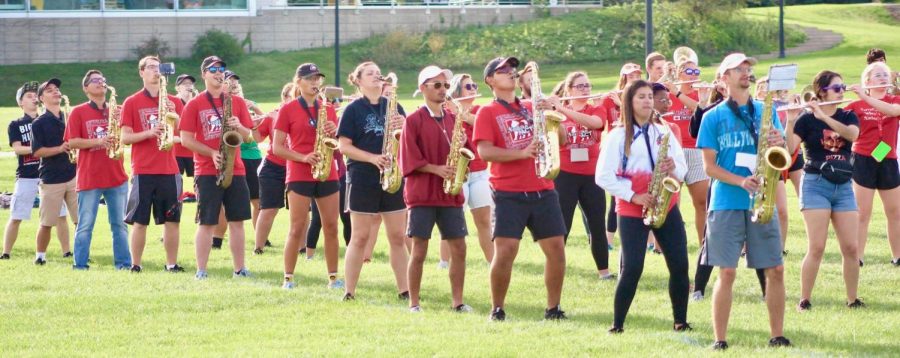Credit hours should reflect hours spent
September 18, 2019
The process of picking out classes relies heavily on credit hours and making sure there are enough in a schedule. The number value of credit hours should be a more accurate representation of the amount of hours students spend on a course through lecture, lab and rehearsal times.
Most standard academic classes give the same amount of credit hours as the amount of hours spent in class during a school week, but there are some classes in disciplines such as music and science that make it difficult to accumulate credit hours.
Music ensembles are major offenders of stealing students’ work hours without offering reasonable credit hour compensation in return. There are a few examples of ensemble rehearsal times from the School of Music Fall 2019 Orientation Handbook that show this issue.
NIU Philharmonic and Wind Symphony both rehearse for a total of four hours a week, and the Huskie Marching Band rehearses for seven hours a week, according to the hand book. Despite these intensive hours, along with additional practice time needed outside of class rehearsals, all three of these ensembles only allot one credit hour.
Unfair hours such as these can make it difficult for students to fit their standard academic classes into their schedule. Illinois state policies for public universities require students to have 12 credit hours to be considered a full-time student, and some state scholarships, such as the Monetary Award Program Grant, may require higher amounts of credit hours for qualification. This problem is not limited to music students and can be seen in the schedules of science students as well.
“With the labs being only one day a week, it’s not that bad,” senior biochemistry major Matt Walker said. “But there are some times when you end up putting in five or six hours after doing lab reports and stuff like that, depending on how intricate your teachers want them.”
A credit hour is one hour of classroom or direct faculty instruction and two hours of out of class work each week for fifteen weeks for one semester, according to the NIU Policy Library.
For courses with less structured classroom schedules, a credit hour may be determined by the amount of student work or an assessment of student-learning outcomes, according to the policy website.
Collective professional judgment of faculty and campus academic officers determine which classes are worth one credit hour such as science labs and music ensembles, according to the policy website. These classes’ credit-hour worth should be reevaluated to satisfy the amount of work hours spent by students.







